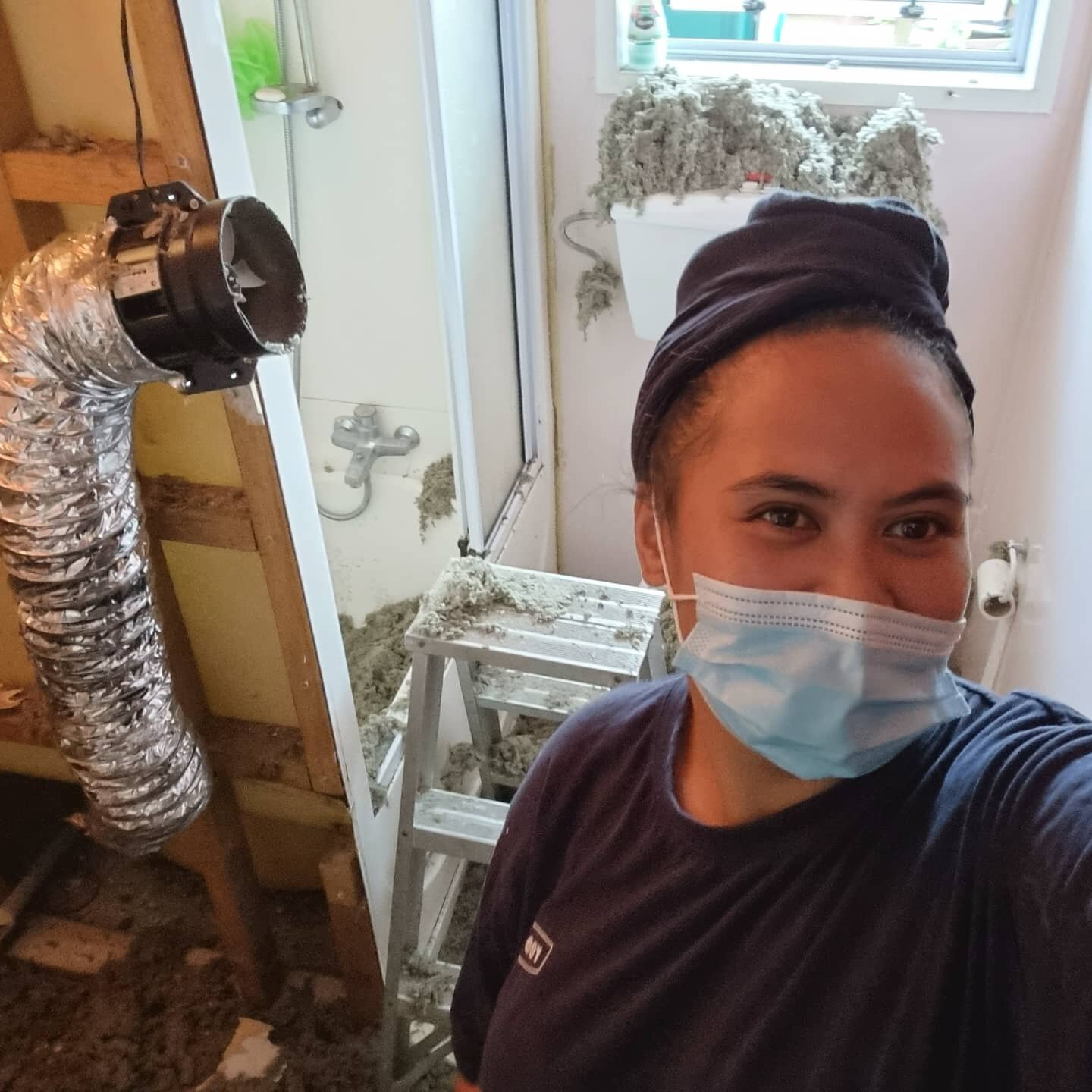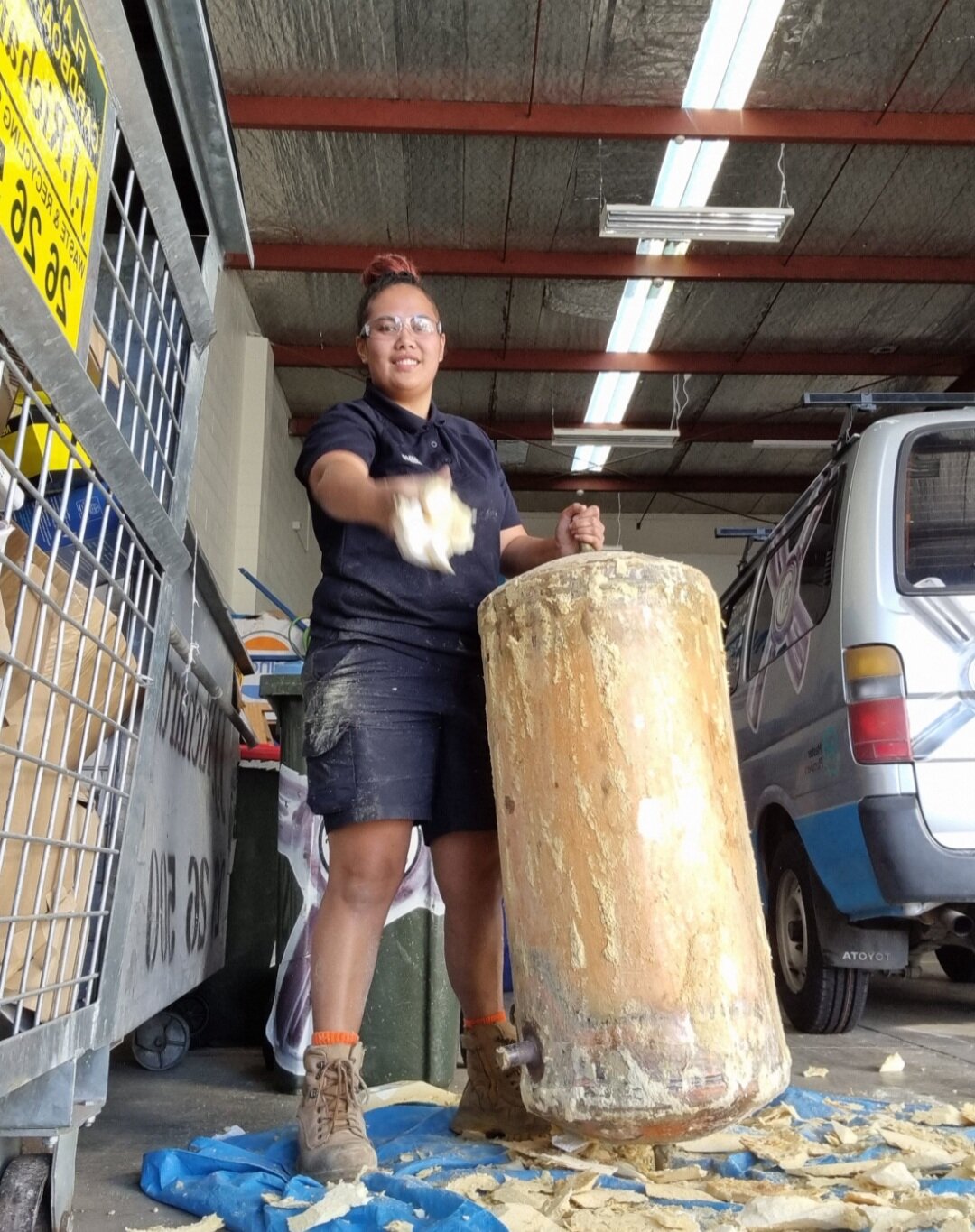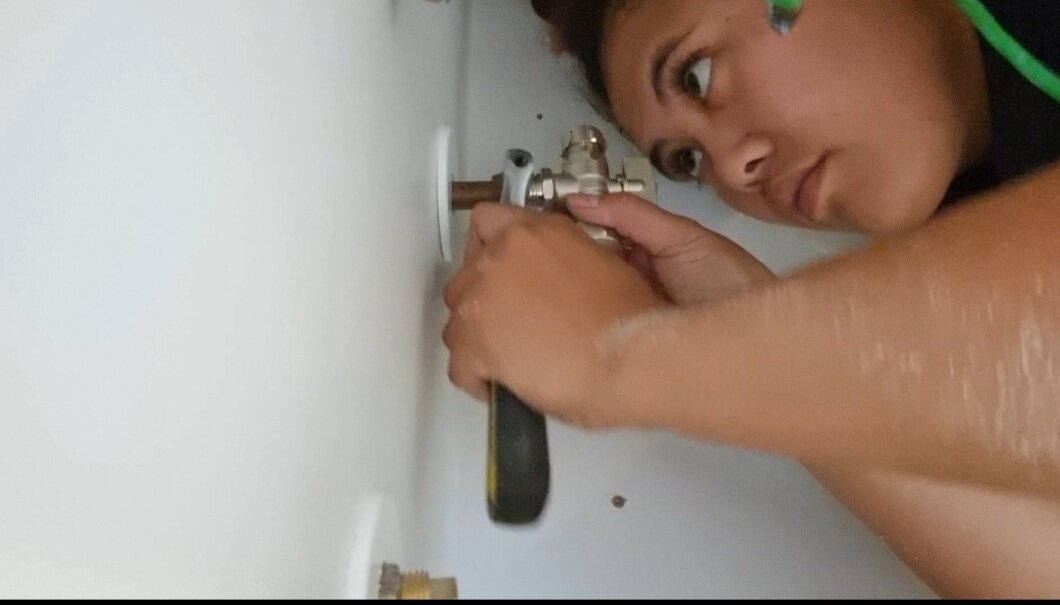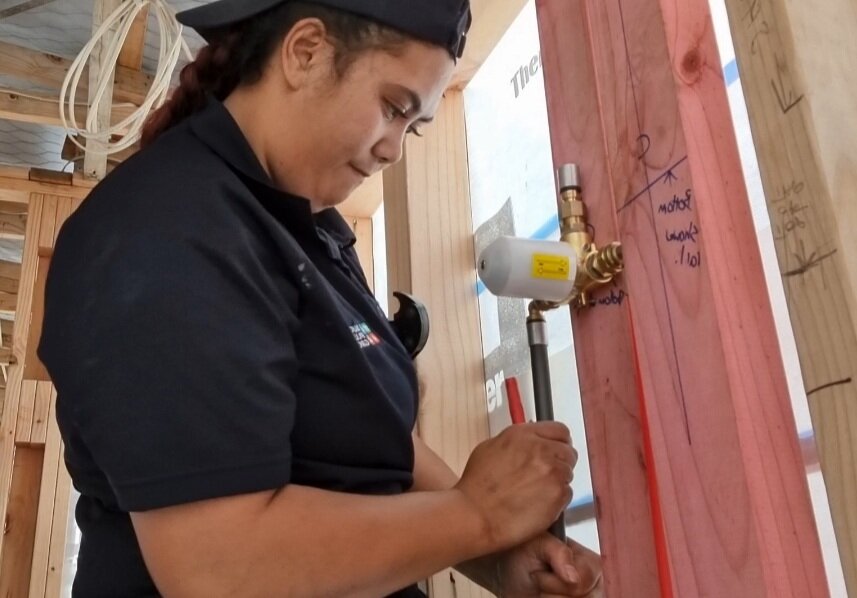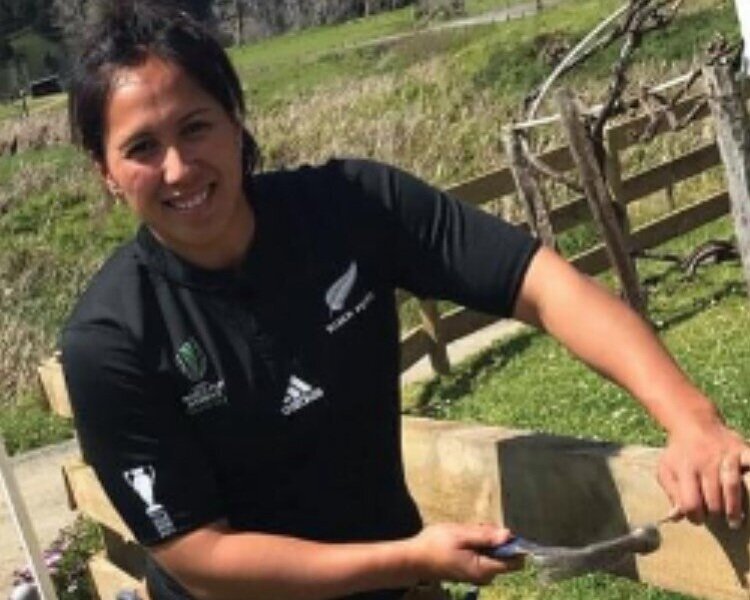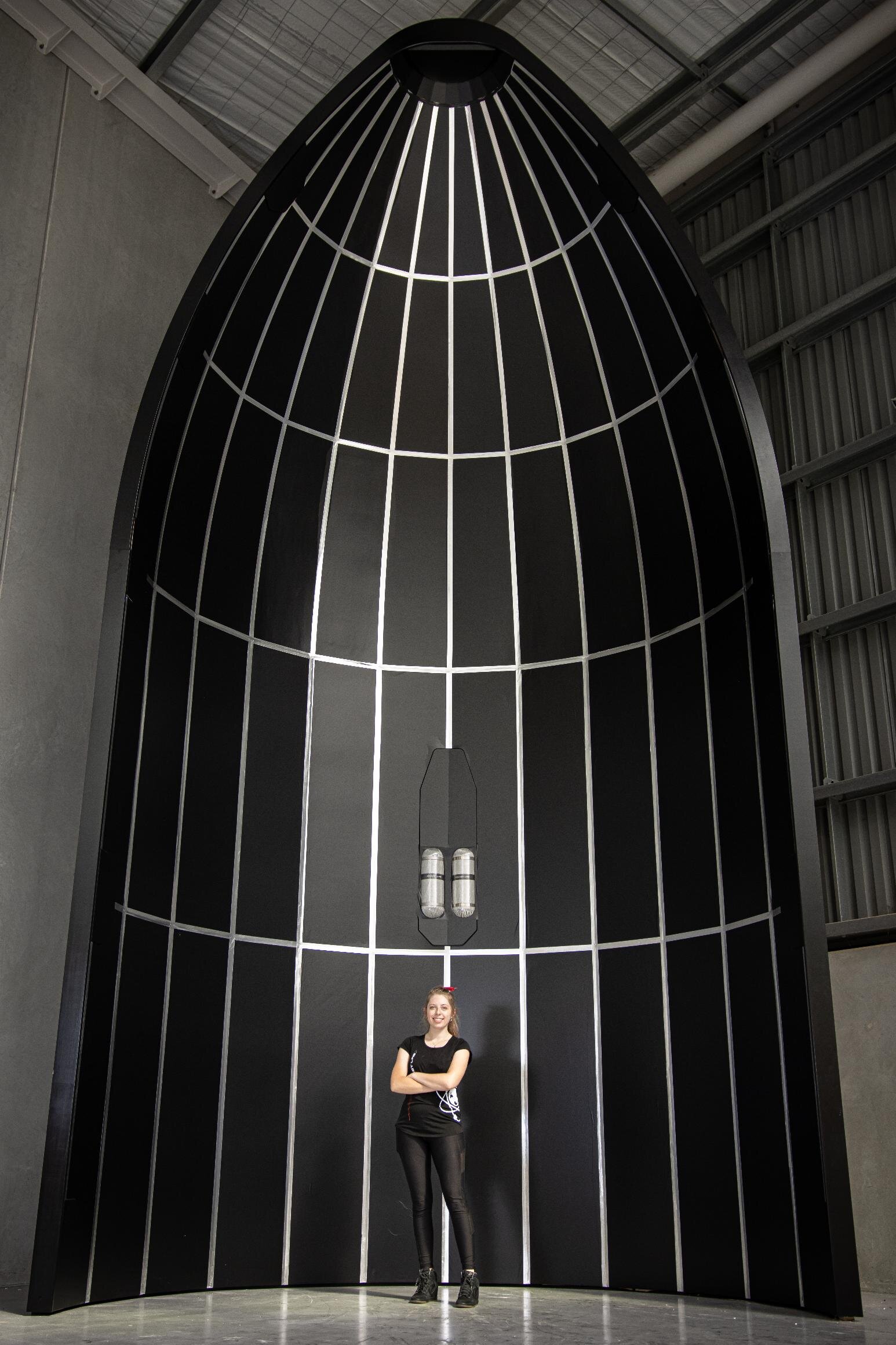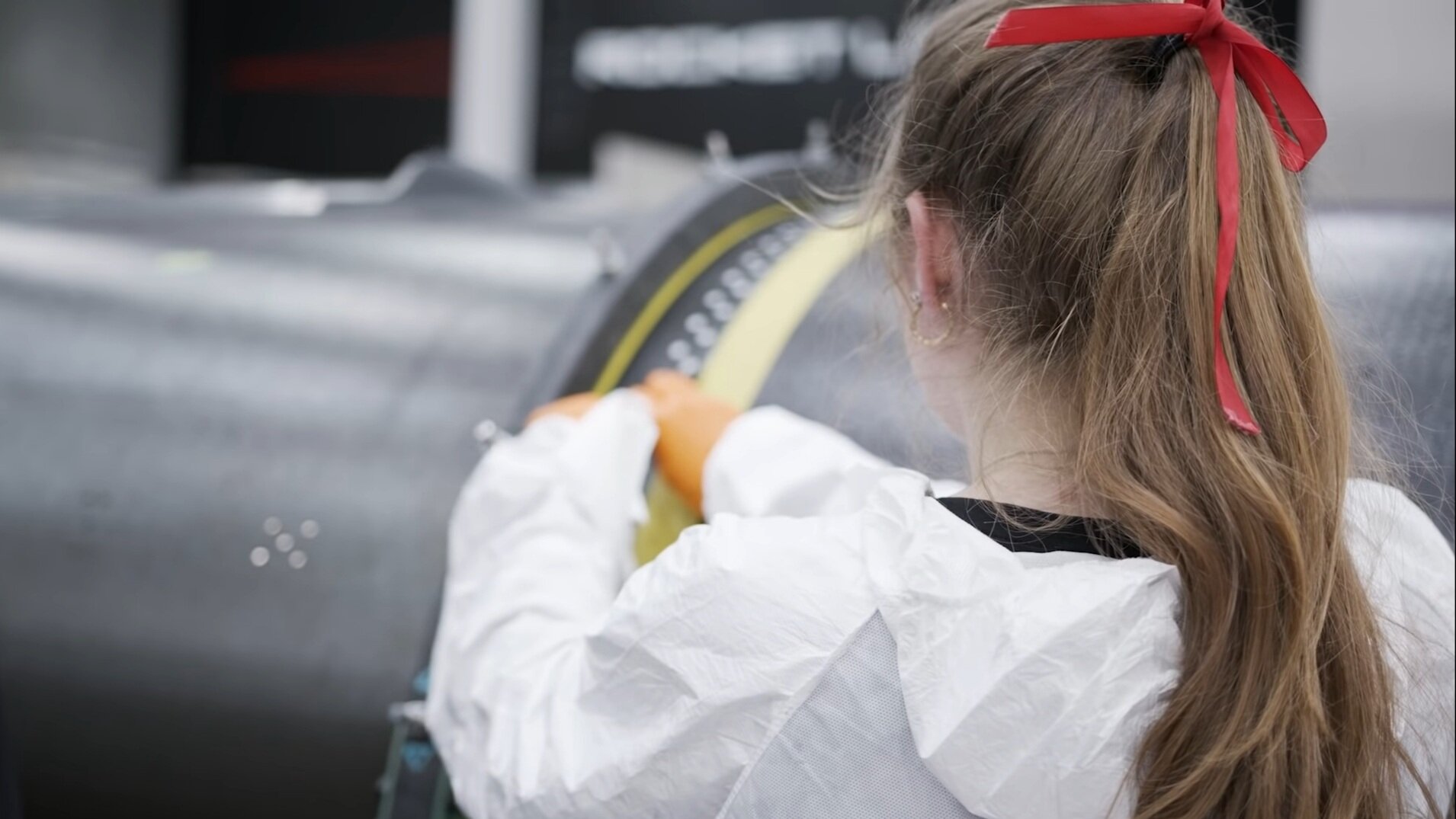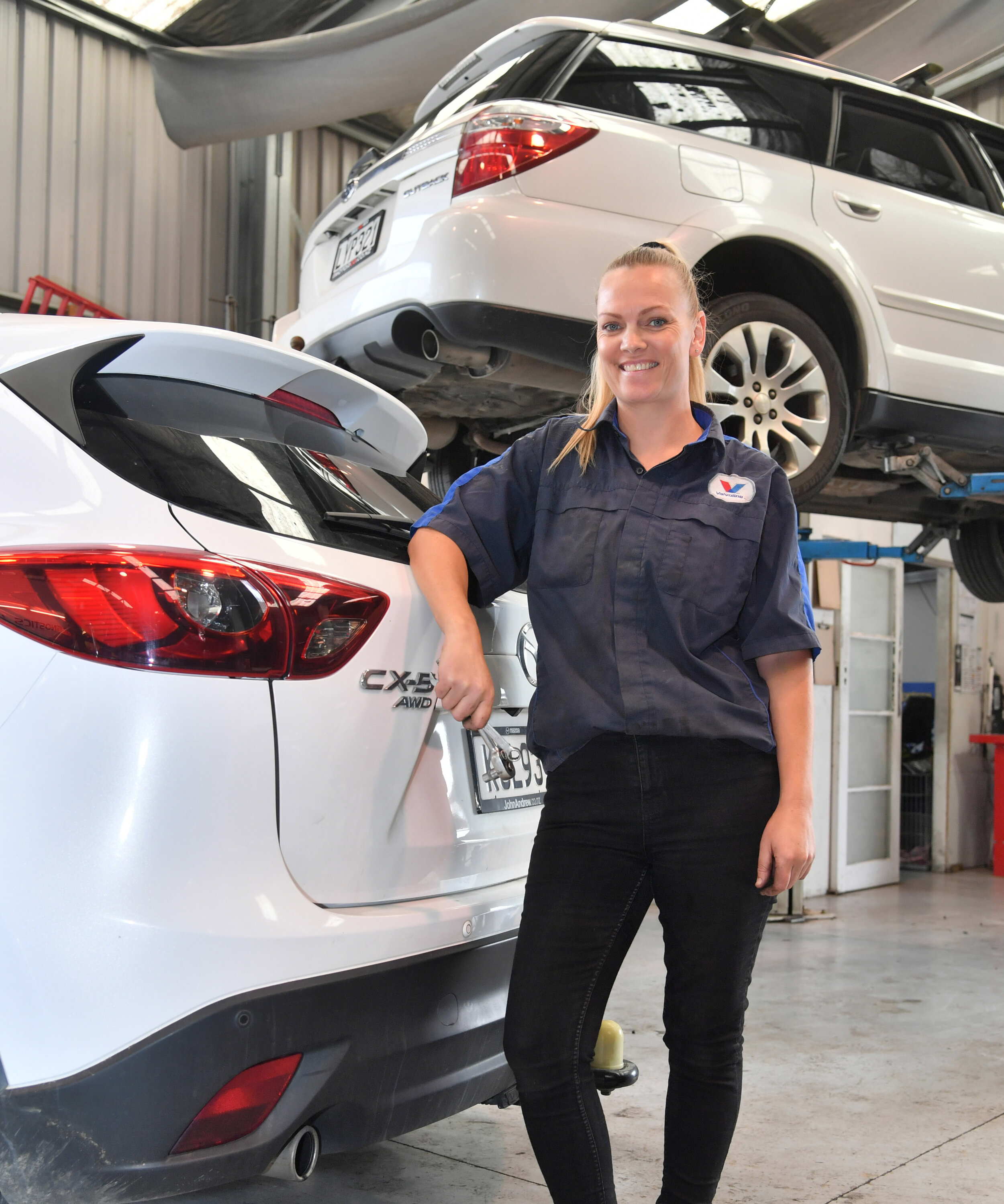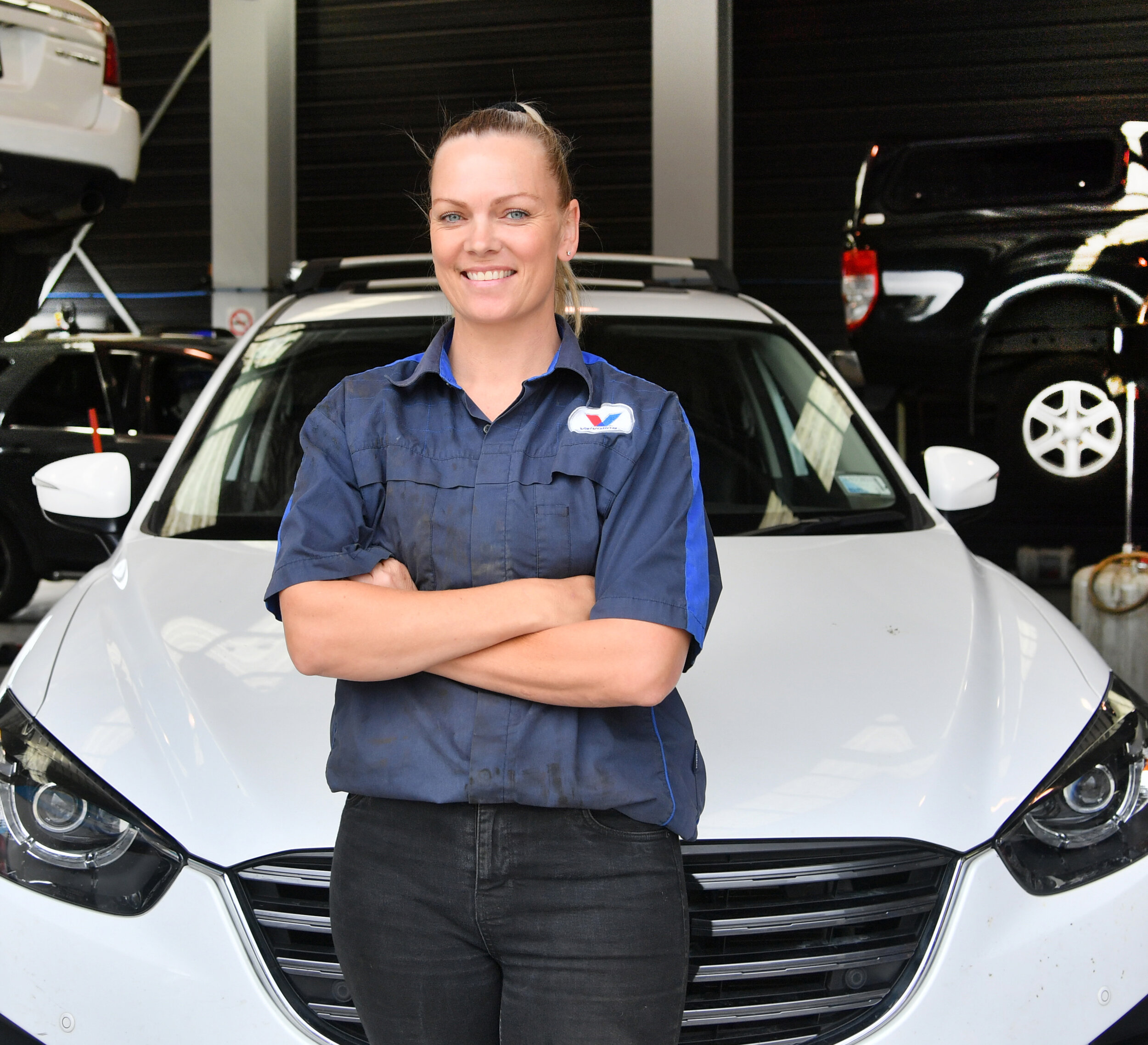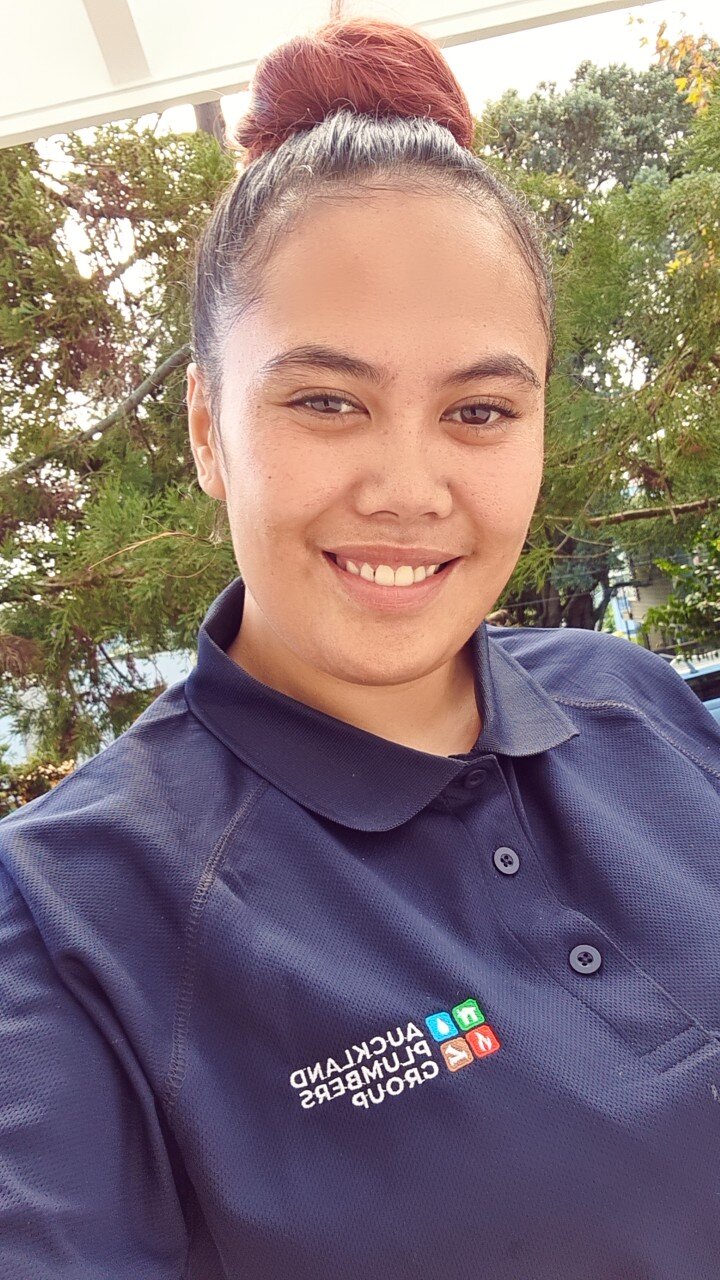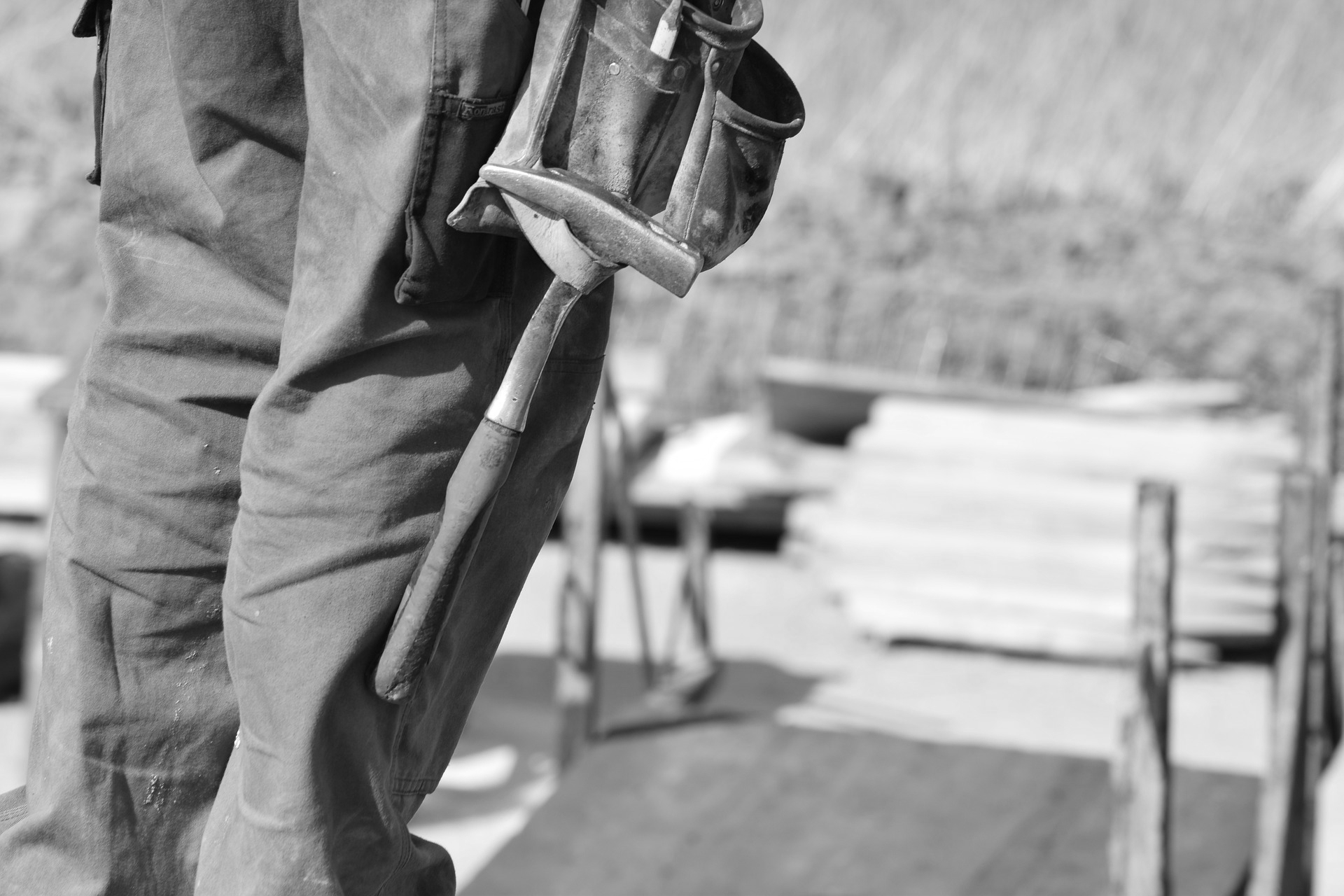
NEWS & INFO
Women In Trades Wednesday - Jenny (SHE Property Care)
We spoke to the amazing Jenny, who is sharing her tips and inspiration as the business owner of SHE Property Care.
Jenny has recently celebrated her first year in business, starting her company ‘SHE - Property Care’ from scratch. She focuses on the maintenance and repairs of residential dwellings, and her goal is to work for women in women's trades and networks. Each day is very varied; some days, she will mow lawns, other days plaster and paint a wall, rip up an old deck, replace rotten boards with new ones, and then stain them once the boards are safely screwed in. “On other days, I clean gutters and also work with installing acoustic panels for clients too.”
Jenny found her way into the construction industry through a position with a recruitment agency specialising in building and construction. “My boss Kevin taught me a lot about roles and trades within the industry, and I fell in love with it.” As a recruiter, Jenny was fortunate enough to interview and place a lot of women, and she felt proud that they wanted to belong to an industry that is so male-orientated. From that position, Jenny progressed to the commercial building sector as an architectural consultant specialising in acoustics and ceiling designs for schools and commercial office spaces.
After having space to think about her future during a Covid lockdown, she took a step back to look at the bigger picture and her purpose in life. Having previously been the President of the National Association of Women In Construction, Jenny was awarded lifetime membership for her contributions to the association. This, along with her previous work experience, encouraged her to ‘walk the walk’ instead of just talking about it. “I resigned from my job and became self-employed, working in the trades, much to my terror and delight!”
Jenny was inspired to start her company by NAWIC and her family, so she spent the rest of the lockdown designing and writing her website and thinking about how she wanted to move forward with her business. She got her first job by posting her website and blurb about herself on the TradeCareers website. A lady called her urgently needing a garden tidy up “… and that was the first catapult into the next job.” When you own your own business, Jenny says it’s very much word of mouth and referrals from the happy clients you work for.
Jenny has learnt a great deal from starting her company, ‘SHE’, such as gaining confidence in how to place value on her time, and how to bill appropriately. She has learnt project management skills and how to use the skill saw, “I love my tools, and I take good care of them.” Jenny has learnt to listen to her peers, who have experience in the industry, take advice, ask for help when she needs it and not let her ego get in the way. She has learnt that it’s OK to make mistakes as long as you learn from them and better yourself next time. She has also learnt not to be so hard on herself or be overly critical of her work. “That’s a hard one!”
There are many challenges to overcome when starting your own business - especially in a male-dominated field. She struggled with the fear of the unknown, unsure she had what it takes to learn the trades, be a company owner, and hire subcontractors and staff. “The weather has played a part in the challenges, too - really have to dig deep (pardon the pun) and make plans to work indoors!” However, what Jenny has found that she loves most about her trade is that no two days are the same. She loves seeing the clients’ faces when she has completed her work, and they are thrilled with the outcome. She loves that she travels all over Auckland, meets new people weekly, and helps to make their problems disappear. “I love that my son thinks I am cool. That’s what I get the biggest kick out of. Oh, and making a few dollars to pay the bills, too.”
Jenny has gained a lot of confidence by starting her own company and has so much to be proud of in her career; being NAWIC President and starting her first major bathroom renovation are right up there. Jenny is also proud to be able to inspire her contractor to be all she can be, “she is growing in her confidence every day. That’s massive to me.” In the future, Jenny wants to continue this inspiration by training and offering courses for women who wish to be in the trades or learn about maintenance. She would love to build up a few maintenance teams across the country.
There are always things we look back on and wish we had known when we first started. For Jenny, this was about monitoring her time carefully, “being a salesperson, accountant, marketer, mum, partner, manager of a sports team, packing the car ready for the next day and taking time to look after me too.” Time is her most precious commodity. She has learned not to say yes to every job, “some of them are just not worth the time, effort or petrol!” Her advice to someone looking to get their ‘foot in the door’ would be to ask lots of questions and gain nuggets that ring true to you and what your goals are. Don’t overthink or try to do whatever someone else tells you is the right way. “It’s a way - but not necessarily the best one for you. Be curious and give yourself some time to try out new things. You could be pleasantly surprised.”
Toilets for Female Tradies
Are toilets for female tradies being ‘overlooked’ on some construction sites?
In September, I was lucky enough to attend the Women In Trades Conferences in both Wellington and Christchurch. An incredible group of women were there and a huge amount of supporting businesses in the trades industry. There were some really interesting conversations at the end of each evening, where a panel of women working in the industry answered questions and generally spoke about their experiences as women in trades.
One such topic which stood out to me was the subject of toilets for some female tradies, being quite often ‘overlooked’ on construction sites. Zoe, one of the discussion panellists at the Christchurch event, spoke eloquently about her experience as a scaffolder on various construction sites that lacked a toilet. “It’s an expense to have a toilet on site, so that expense falls on the builder or it falls on the homeowner, or whoever’s job it is. So if builders can avoid getting a toilet, getting a portaloo, they generally will, despite the fact that it’s a health and safety issue,” Zoe explained.
My partner owns a construction company and I have been known to join him on-site now and then for various reasons. The other day I went to the site for the day at a house where they were building a separate garage for the owners. There was no toilet available on site, as the owners were not home, and no portaloo had been organised for the site. I had to go to the toilet about three times that day, which resulted in me walking to the corner of the property and squatting behind a bush. This, as you can imagine, brought the issue of toilets on sites right to the forefront of my mind again!
According to Trade Careers, only 13% of all tradies are women in New Zealand. Being even more of a minority as a female scaffolder, Zoe spoke about the issue with toilets from her perspective. “The toilet thing for me personally, and I think for subcontractors, is quite a big problem, just because there are not consistently women on site, and there doesn’t seem to be much enforcement around toilets.” Zoe continued to say that if you are lucky enough to have a toilet on site, it’s most likely to be a portaloo that you are sharing with countless men - her face said it all.
Another panellist, Tendy, spoke of her experience with toilets as the only female builder on many of the sites on which she works. “I share a site with just men, so it’s just a portaloo, and they can be pretty gross.” Tendy told us how she advocated for herself by going to her boss and requesting that they either have two portaloos or one provided with sanitary bins. She noted that occasionally there are other female contractors, mainly painters, who come to her building site, “that's the same issue, we get our periods, and it’s just a normal thing and every woman gets it so why not provide toilets for those women as well.”
Women’s toilets are often overlooked and the provisions of sanitary disposal and the use of menstrual cups and tampons are just not given thought. Zoe mentioned the importance of access to free-flowing water; “if you use a menstrual cup, for example, it’s impossible in a portaloo, unless you’re bringing in a bottle of water… some things just haven’t been thought about yet.” However, this lack of thought will be forcing women tradies all over New Zealand to take drastic action, risking their health, safety and hygiene through practices like drinking less water or deliberately delaying their menstrual cycles.
Now it’s all very well highlighting this problem, but what about some solutions? What can we do to ensure we have access to toilets and flowing water on site?
According to Worksafe’s guidelines on ‘Facilities on construction sites,’ “Where females are engaged or employed, there should be suitable provision for the disposal of sanitary towels. Where conveniences for each sex are provided they shall be separated by walls of full height.” Therefore if you are working on any site, there should be a toilet provided with sanitary towel disposal. Attached below is a link to this information should you need to provide it to anyone to help assist you in getting these facilities on your sites.*
I emailed the company ‘Superloo’ to ask them about the kinds of portaloos they usually hire to trade contractors. Grant was very accommodating and gave me the following information:
“We do supply & service Sanitary Bins on request; our sales team do promote this where possible. Our units come with hand sanitiser. We have found clients with women on site are more likely to upgrade from Non-Flush to Recirc Flush Toilets.”
This gave me a bit of hope, that there are companies out there thinking of us. Grant mentioned, however, that portable toilets with hand basins and flush capabilities come with extra risks such as water potentially sitting for long periods of time, foreign objects being disposed of inside the tanks and contaminating the water, which then become hard to flush and decontaminate.
If you are dealing with less than satisfactory toilet facilities on your sites, it's definitely something you can bring up and discuss with your boss or the site manager. You are legally allowed to request a toilet with a sanitary bin at the very least. We now have more women in different trades and as contractors who need the opportunity to have a safe sanitary toilet to use whenever the need arises. Have women not been in the industry long enough for people to think about these things? In 2022 should we be able to expect a higher standard for women?
Let me know what you think. If you are a female tradie, how do you deal with the lack of a toilet, or what have you done to make sure one is provided on your sites? We would love to hear from you if you have a positive story about getting the right facilities to make work a more comfortable place in the dunny department!
Women In Trades Wednesday - Kanisha Stevenson
This week, we had a chat to Kanisha, who is sharing her tips and inspiration as a Fabrication Engineer with a strand in heavy fabrication and what her experience has been so far.
Kanisha is a qualified Fabrication Engineer specialising in heavy fabrication. She has been in the engineering fabrication trade for almost 5years, after becoming uninterested in working in hospitality. Kanisha wanted a more challenging career and was determined to find one she loved. She didn't even realise a trade could be an option; however, after some research, she settled on a mechanical engineering pre-trade and fell in love with the fabrication aspect.
Kanisha completed her study through Ara Institute of Canterbury, "It's extremely hands-on, and they don't go easy on anyone - amazing tutors!" While she struggled to find a full-time job straight after studying - despite being a student rep and obtaining a High Performance in Welding and Fabrication award, she kept pushing herself and was offered a casual position with Spunlite Poles. She landed her apprenticeship less than one month into employment and has quickly risen through the ranks. After becoming a team leader (while still an apprentice), it wasn't long before she was promoted to production supervisor - her current position. Kanisha was then challenged with overseeing the day-to-day operations of two separate manufacturing departments, managing 12 staff members spanning two shifts She is now in the process of moving one of those departments to a new location, where alongside her production manager, will expand production and eventually introduce an entirely new department to the business. This involves a fairly big step up in her career as she will play a big part in running the new site.
Day to day, Kanisha arrives at work earlier than everyone else to plan the team's work for the day. “Every day is somewhat different; there is always a mixture of work I have to plan for. I do a lot of running around organising and problem-solving, training, expediting and QA (quality assurance) of products. But I do get on the tools every chance I get,” Kanisha explains. She signs off everything her teams produce and ensures her departments run efficiently, with a big emphasis on health and safety. Kanisha is mindful that she works in a dangerous environment with a lot of powered tools, heavy machinery and heavy materials. "If something is to go wrong, it can go wrong in a big way". Her highest priority is to make sure everyone goes home safe. Because Kanisha works in a fairly niche market, very few people come to her with experience making poles, so a lot of in-house training is involved in her position.
Kanisha’s biggest challenge in moving into this industry has been the physical side of things, “I went from taking food orders to crawling inside of poles with a grinder and a welder; I had a few early nights in the beginning, haha!” But, she says, you get used to it, and nothing beats the feeling of seeing the things she’s created or helped make. “I can literally walk to my letterbox and see numerous things I've made with my own two hands, it's awesome!”
The first big project Kanisha was involved in was an 80m mast for Samoa, which took nine 40ft containers to ship to the islands, “There is always a sense of pride when you can say, hey, I worked on that.” After putting a lot of extra time into completing her four-year apprenticeship, she feels proud to be where she is now and is excited to explore the many avenues available to her within the industry.
Kanisha is giving back by mentoring future wāhine that have come through Spunlite Poles for work experience. She explains that the industry is still very male-dominated, and a lot of companies are quite hesitant to have females (especially young women) on the floor, so she suggests that, when looking for a job, you choose a company that lives and breathes its values and has a great culture. “I wouldn't be in my position today if I didn't have such a supportive leadership team backing me up and pushing me to be better.” So do your research. Her advice for someone looking to get into her line of work is to put yourself out there and have confidence in yourself. “Skills can be taught; it’s your attitude that will seal the deal.”
Not long ago, she was messaged by a friend that one of the weld inspectors at their workplace had said, "There's this real good chick at Spunlite." These sorts of comments boost her confidence and are fantastic to hear. “If we can keep breaking the mould for women in these non-traditional trades, we could change the futures of so many women who never thought these careers were options, as well as potentially evolve business.”
According to Kanisha, the guys in the trades will test you, but they will also be your biggest allies. You will succeed if you persevere and soak up the knowledge around you. “Be humble, and grateful for any bit of knowledge passed down to you.” Kanisha's operations manager taught her that "you are your own brand" and she quickly learned that he was right. “The great thing is that we are at a point where all eyes are on us, and if you choose to work hard and prove yourself, then you can make a great name for yourself in the industry, a name that could last a long time,” says Kanisha. Ladies, the ball is in our court - make it count, take a leap, start a trade.
Women In Trades Wednesday- Aroha Savage
Aroha Savage is a qualified builder who completed her apprenticeship through BCITO. She has been working in the industry for 5 years.
Not long after finishing school Aroha started working at NZ post. "I signed up with NZ post with hopes that the bicycle riding would keep me fit for rugby. Although that job was flexible and kept me fit, my dream was to one day build my own house. To do this I knew I would have to take up building."
After being with NZ post for 6 years, Aroha was flicking through a newspaper and noticed an ad for a 6 week basic carpentry course. "I did the course and was very grateful for it. I learned some very important skills while also gaining credits". She then signed up to a level 4 carpentry course at MIT in Auckland. After two weeks she felt like it wasn’t the place for her. "I started hunting through newspapers again and found a company looking for workers. I gave them a call and got an interview. I started the following week and did a 3 month trial. I was then offered an apprenticeship and I haven’t looked back since."
Watching tradies fix odd jobs around the house had also inspired Aroha to choose this career. "I’d watch builders fix things that I thought were impossible to fix, but they were actually really easy. I couldn’t get over how much it costs to fix a small job that I could’ve done myself. It inspired me to look into doing the jobs myself and then furthering it into a career."
Every day at work is different for Aroha. "In my first year I did a lot of site cleaning, small jobs and helped out the boss. I slowly worked my way onto the tools and eventually could carry out tasks on my own. Tasks like framing, finishing work, cladding, roofing, installing gib, hardware and joinery. Setting out and formwork came at a later stage in my apprenticeship, when it was easier to do on my own."
When Aroha first started, she found it challenging being on site with 10 other men. "I had to get used to their yarns and how they worked. My boss was also a hard man, he had me doing a lot of stink jobs on-site that really tested my mental strength. The first few months were hard but I stuck in there. I adjusted to the tradie life and earned my position in the team. The days were long, my belt was heavy and it took a toll on my body. I got used to it, overcame all the challenges and I'm better for it now."
The skills Aroha has learned are what she loves most about being in her trade. "I'm grateful for all the learning. Now I can build my own house and fix whatever I need on my own, without having to pay someone else a fortune to do it !"
Whilst completing her apprenticeship, Aroha successfully juggled her building and rugby careers. "5 long years in and finally earning my certificate was definitely my proudest achievement. I could travel for rugby while I wasn't on the tools. I managed to win a World Cup during this time which was another proud moment."
The future looks bright and busy for Aroha. "I have just recently had twins. I haven’t decided if I'm going to spark up my own business yet. I might spend a few more years on the tools and see where it takes me. I am possibly going to take up a teaching role to teach carpentry in high schools."
A few of years ago, Aroha held DIY classes in Kaitaia for women wanting to learn basic building skills. "It was such an awesome experience. Not just for the ladies, but for myself too. To be able to share all my knowledge with them was very special for me and very rewarding! I love helping people however I can. I learned a lot about myself during this time as well, so this is probably a time in my building career I feel most proud of too. Knowledge is a very important thing to have, but to pass it on and share with others is far more rewarding."
Choosing the building trade as a career hasn't had too much of an impact on Aroha's life outside of work. "I managed to fit work in with my personal life and my rugby career, it all worked well together. The physical side of the job kept me fit and strong for rugby. I’d train at the gym before work, work a 9 hour day, then head to training after work for another 3 hours. My boss was flexible with my time off when I needed to travel for rugby. I’ve had to take time off work now that I have children and will have to reassess my goals and plans going forward. I definitely want to stay in the trade whether or not that be physically on the tools. Building has become a passion of mine so I still want to do it, however that looks."
On advice to getting your foot in the door Aroha says, "Do as much research as you can about the trade and learn a few skills before going on-site. Find a crew you're comfortable working with and go for it. Some days are hard but don't give up. It’s all worth it once everything starts clicking. You'll be able to go and build whatever you want on your own! When I got started, It would’ve been nice to know what belt and essential tools to buy. I didn’t know this at the start and didn’t have the right gear to work with. I always give people I know a heads up on what to do/buy so they get a head start."
"It’s never too late to start! I definitely recommend giving any trade a go. The skills you learn are with you for a lifetime and you can pass them on to your kids. It’s much easier to earn while you learn. If you're a hands on learner like myself then an apprenticeship beats the classroom any day!"
Women In Trades Wednesday- Marcelle
Keen on getting into a plumbing apprenriceship? Check our Marcelle’s story for tips and insight!
Image courtesy of Masterlink
Marcelle is a plumbing apprentice who is currently 6 months into her apprenticeship. She is studying through Masterlink.
Initially, Marcelle had planned a career in the army once leaving school and had also been accepted into university to study Criminology and Criminal Justice. She was accepted for a scholarship but knew her heart wasn’t in it.
Just as Marcelle was about to finish her schooling year, she remembers running to her careers advisor asking for help to get into a trade. “At first I didn’t know which trade but I knew I wanted to do one. I decided on plumbing and the careers advisor helped me through it all. The rest was history”.
The careers advisor recommended a local plumbing company. “I had her calling the company daily to ask if I could come in for an interview. I had nothing holding me back from coming in over the holidays and proving that I was worth offering an apprenticeship to. I worked hard and felt determined to show I was capable and dedicated to the jobs I was given. In the end, I was offered what I had been working towards. I’m thankful that it was noticed how motivated I was and how much getting this apprenticeship meant to me.”
A typical day at work for Marcelle consists of installing water fixtures, hot water cylinders, vanities and other bathroom utilities. She’s done pipe outs, spouting replacements and is always being “kept on her toes”.
Inspired by her partner who has nearly finished his apprenticeship, Marcelle says “I think what really got me interested was the way he’d talk about his trade, he absolutely loves it. I thought about trades a lot after listening to him and I decided that it was something I wanted to look into”.
There were some challenges. “It was more of a mental health game for me, I felt defeated knowing I didn’t have much support at the time. I felt lost but I was willing to guide myself through it, if that was what it took. I still struggle with things and I’m just starting to take in the reality of it all.”
Marcelle loves the variety in her trade. “I love that it includes multiple different jobs and we’re not in the same environment for too long. I also love how much thought you put into the work. Strategies and problem solving really interest me and this job has it all. I love the fact that I’m able to learn on the job and discover as I go. It keeps it interesting.”
Installing her first hot water cylinder is Marcelle’s most proud career achievement so far. “I find it a bit hard but once I get used to it I’ll be well on my way to installing them on my own”. Future career goals include finishing her apprenticeship and possibly starting her own business in the far future. “I’ve only just begun my apprenticeship. I think I’ve settled in well and I’m looking forward to earning my way up.”
On advice to getting your foot in the door, Marcelle says: “For me personally, I wish I had started off in Gateway during school and had a head start before jumping right in. It can pay to check out all trades first and get a feel for which one’s for you. You get the opportunity to experience it first and decide if you’re keen on moving forward with it after you finish school. This allows you to keep your options open and you don’t have to finalise anything until you’ve found the right one for you. If you want to learn, go for it!.”
Event Panel Feature- Jennifer Haraki
Our final 2021 event panel feature is Jennifer Haraki- Technical Training Advisor at Winstone Wallboards LTD
Women in Trades NZ would like to introduce you to Jennifer Haraki- Technical Training Advisor at Winstone Wallboards LTD, and one of our panellists for our 2021 Getting Women Into Trades Event.
If you are attending the event on August 19, and have any questions for Jennifer, make a note and bring them along- you will have the opportunity to ask questions of all our panellists at the end of the panel session.
WIT: Tell us about yourself- who you are, any hobbies?
Jennifer: I am married with 2 young adults with special needs. A lot of our time is spent on securing a future for our children so that once we pass, they will be okay. In doing this our children have become our social life. When my focus isn’t on my family my hobbies mainly include learning new information.
WIT: What area of trades do you currently work in, and what did you do prior to this?
Jennifer: My trade is Carpentry. Because I know how to build a house, this gave me the opportunity to complete a QS cadetship, become an Architectural Technician, a Project Manager and have a legislative role as Building Processor and Inspector with Council. I am a GIB® Technical Training and Support Advisor working for Plasterboard Manufacturer Winstone Wallboards on the GIB® Technical Training and Support Team.
We operate the GIB® Technical Helpline that deals with enquiries based on our performance systems like Fire, Noise and Bracing.
We provide advice and on-site support from Builders to Architects and anyone in between.
Part of my role in the GIB® Technical Team is to provide on-going support to education organisations that provide and deliver training to the trades including Construction, Building and Architectural courses.
WIT: What do you find most enjoyable/rewarding about working in your trade?
Jennifer: a. The collaboration of working with others, b. getting the best solution for an on-site issue. C. Even if the answer is not welcomed, we are still helping.
Our industry is a labyrinth of connections and if you don’t understand these connections or have people who can help you make these connections; it becomes very disjointed. That’s why working with those who are just starting out is so important. It’s a really rewarding feeling to be able to give back.
WIT: What have you found most challenging, and how did you overcome these challenges?
Jennifer: I find the most challenging factor is that sometimes people will judge you before they’ve taken the time to understand you because you do not fit in a box. Dealing with people’s egos, discrimination and perceived perception- You keep working hard and look for people that see you as an advantage and have the ability to utilise your skills and experience to not only benefit them but also gives you room to grow.
F.A.I.L is the acronym First Attempt In Learning – look at it as “you gave it a shot”. Do not look at it as failure look at it a “stepping stone” to achieve your real goal and then “go hang out with smart people” who give you a hand up –I have to be reminded that it is my journey not “someone else”. In my opinion people should just get the job done.
WIT: Do you have any goals for the future?
Jennifer: Present goal is to upskill and complete NZDAT. Short term goal - When these young people step out of the classroom and into the workplace, it’s important that their learnings are immediately relevant so I help people understand where they are going and ensure they can make a meaningful contribution to their employer from the moment they pull on their work boots. It’s my job to make sure that when they leave the classroom, they get it right. Long term goal – oversee a shift in industry standards.
WIT would like to say a huge thank you to Jennifer for taking the time to help us get to know a little about her trade journey, ahead of hearing from her in person at the upcoming event.
If you haven't got your FREE tickets yet- head to our event page HERE for all the info and tickets!
Event Panel Feature- Shenay Fraser
Next up in our 2021 event panel features is Shenay Fraser- Composite Apprentice at Rocket Lab.
Women in Trades NZ would like to introduce you to Shenay Fraser- Composite Apprentice at Rocket Lab, and one of our panellists for our 2021 Getting Women into Trades Event.
If you are attending the event on August 19, and have any questions for Shenay, make a note and bring them along- you will have the opportunity to ask questions of all our panellists at the end of the panel session.
WIT: Tell us about yourself, what do you enjoy? What do you do for fun outside of work?
Shenay: Hi, I’m Shenay Fraser and I’m a Composite Apprentice at Rocket Lab. I’ve been here for just over two years working with carbon fibre parts, and learning from an awesome group of highly skilled technicians. Outside of work I enjoy keeping myself entertained with fitness as well as working on my cars, and spending time with my amazing family.
WIT: What trade do you work in and what experience do you have within your trade? Did you make a change from a more traditional career?
Shenay: Two years ago, Composites was something I’d never heard of before. When I found out I could learn on the job and be hands on, I knew it was exactly what I wanted to do. In school I was more into the fun, crafty subjects like art, graphics, and hard materials.
I’d initially been interested in going to university to study Architecture, but decided an apprenticeship route would be a better choice for me. Being just over half way through my apprenticeship, I still have so much to learn- I doubt the learning will ever stop with the way the future is evolving! Especially when you realise carbon fibre is everywhere. From Space, to the race track, sailing the oceans, and on the farms. You can go anywhere in the world and build anything!
WIT: What do you find most enjoyable/rewarding about working in your trade?
Shenay: One of the most enjoyable and rewarding aspects of my job would be the fact I build actual rockets! Since it’s my daily norm I sometimes forget how epic it really is. I also love that I’m working with such a great group of people- good people always make for a great workplace environment.
I find it extremely rewarding that I’m expanding on my knowledge with a variety of beneficial skills which will follow me into the future with anything I decide to build. It’s incredible to know I’m working on a launch vehicle that transports satellites to space to help improve life on earth!
WIT: What have you found most challenging and how did you overcome these challenges?
Shenay: Something I find challenging is seeing the men do things I can’t do so well. Such as lifting some objects or having more strength to do some things faster than what I can. This just means I’ve got to find a solution to make those tasks work better for me. For example, when it comes to being vertically challenged, I find something suitable to stand on. With tasks that include strength, I give it a go, but if it’s not going my way, I’ll ask for help. There’s never any shame in asking for help- you’re part of a team for a reason!
When it comes to being slower, just know that over time, with more experience and confidence you’ll increase in speed. No-one likes to admit they have weaknesses, but just know that everyone has them, and you’ll see that you'll find your own strengths.
WIT: What advice would you give re finding a job / the interview process? Or starting out fresh in a new company as a new apprentice? Do you have any words of support/encouragement?
Shenay: My words of encouragement to any women of any age who are interested in a trade are to simply have a positive mindset, get out there and give it a go. Learning isn’t always easy, but with passion, drive, and determination you’ll be able to achieve anything you want to!
WIT: Do you have any goals for the future?
Shenay: My future goals are to complete my apprenticeship and continue on with my trade, or potentially look into a second apprenticeship to learn more new skills about something else that piques my interest. I’d also like to raise more awareness around women getting into trades. It’s such a rewarding career option that can take you anywhere- along with it being a great journey of self- improvement to make you a stronger woman, mentally and physically.
WIT would like to say a huge thank you to Shenay for taking the time to help us get to know a little about her trade journey, ahead of hearing from her in person at the upcoming event.
If you haven't got your FREE tickets yet- head to our event page HERE for all the info and tickets!
Event Panel Feature- Janis Baker
Our third event panel special feature is Janis Baker- 4th year Mechanical Engineering Apprentice and Volunteer Firefighter.
Women in Trades NZ would like to introduce you to Janis Baker- 4th year Mechanical Engineering Apprentice, Volunteer Firefighter, and one of our panellists for our 2021 Getting Women Into Trades Event.
If you are attending the event on August 19, and have any questions for Janis, make a note and bring them along- you will have the opportunity to ask questions of all our panellists at the end of the panel session.
WIT: Tell us about yourself, what do you enjoy? What do you do for fun outside of work?
Janis: My name is Janis Baker. I'm 20 years old, from Inglewood, Taranaki. I'm a Volunteer Firefighter and have recently gained the position as the Deputy Chairperson for the Region 3/Te Upoko Women's Advisory Network.
I am passionate about the community, and being involved with the development of young women and leaders. This is also shown by the work I do with the Innovative Young Minds Program and the Rotary Youth Leadership Awards. Some of my hobbies include baking, sewing and creating things. As well as that I am a very social person.
WIT: What trade do you work in and what experience do you have within your trade? Did you make a change from a more traditional career? If so, why?
Janis: I'm just about to start my 4th year in my Mechanical Engineering Apprenticeship. I work on Hydro Power Stations- so have experience maintaining turbines and generators, and general site work maintenance. I am also enrolled in the National Certificate in Electricity Supply specialised in Hydro Operation. Through this I am learning about high voltage, switching, operating and maintaining transformers, circuit breakers etc.
Before starting my apprenticeship I was in my final year at school, and had work experience milking cows. Through the gateway program I was experiencing work as a diesel mechanic, and also had a part time job at the local Four Square.
WIT: What do you find most enjoyable/rewarding about working in your trade?
Janis: Without the maintenance and hard work that we as a team put into keeping our turbines spinning, there wouldn't be enough electricity to power NZ, so I find it rewarding that what I do is essential for almost any other work to happen. This is from turning your lights in your house on to powering big industrial factories. I also enjoy that Hydro Power is clean and renewable so we have very minimal harm to the environment.
WIT: What have you found most challenging and how did you overcome these challenges?
Janis: Age has probably been my hardest thing to manage. I was 17 when I started my apprenticeship and the next youngest person I was working beside was 40+. This was hard because I was fresh out of school so stepping into a very mature work environment was hard. I was kept on my toes and felt like I grew up very quickly. After a few months of adjustment I absolutely loved working with the team and we got on well.
WIT: What advice would you give re finding a job / the interview process? Or starting out fresh in a new company as a new apprentice? Do you have any words of support/encouragement?
Janis: Give it a go! Most women want to "tick" all the boxes before they apply. I didn't and I got in! I have the attitude about asking questions that the worst answer you can get is no and no isn't bad! Remember - you can always try again next time. If you do get an interview opportunity then go in and give it your best! Believe in yourself and feel confident, because your potential employer will be able to feel how you're feeling. You've got this!
WIT: Do you have any goals for the future?
Janis: I want to start my own business to help encourage, support, and empower women who are leaving school and are unsure about their next step. Whether this is through coaching, mentoring, or attending a workshop. This is still a wee way away but I've planted the seed. I believe I can make an impact with this now as it was only 3 years ago that I was at school, and I have gained the experience through my volunteer work to be able to do this successfully.
WIT would like to say a huge thank you to Janis for taking the time to help us get to know a little about her trade journey, ahead of hearing from her in person at the upcoming event.
If you haven't got your FREE tickets yet- head to our event page HERE for all the info and tickets!
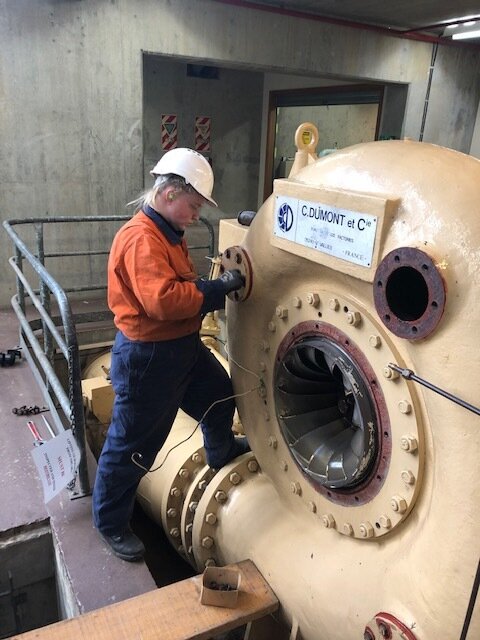
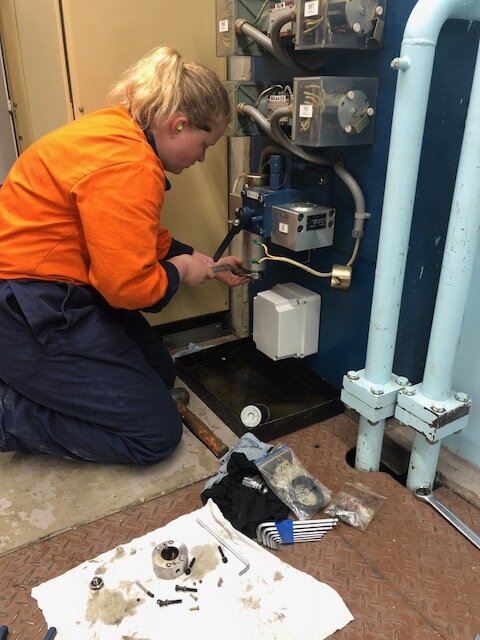
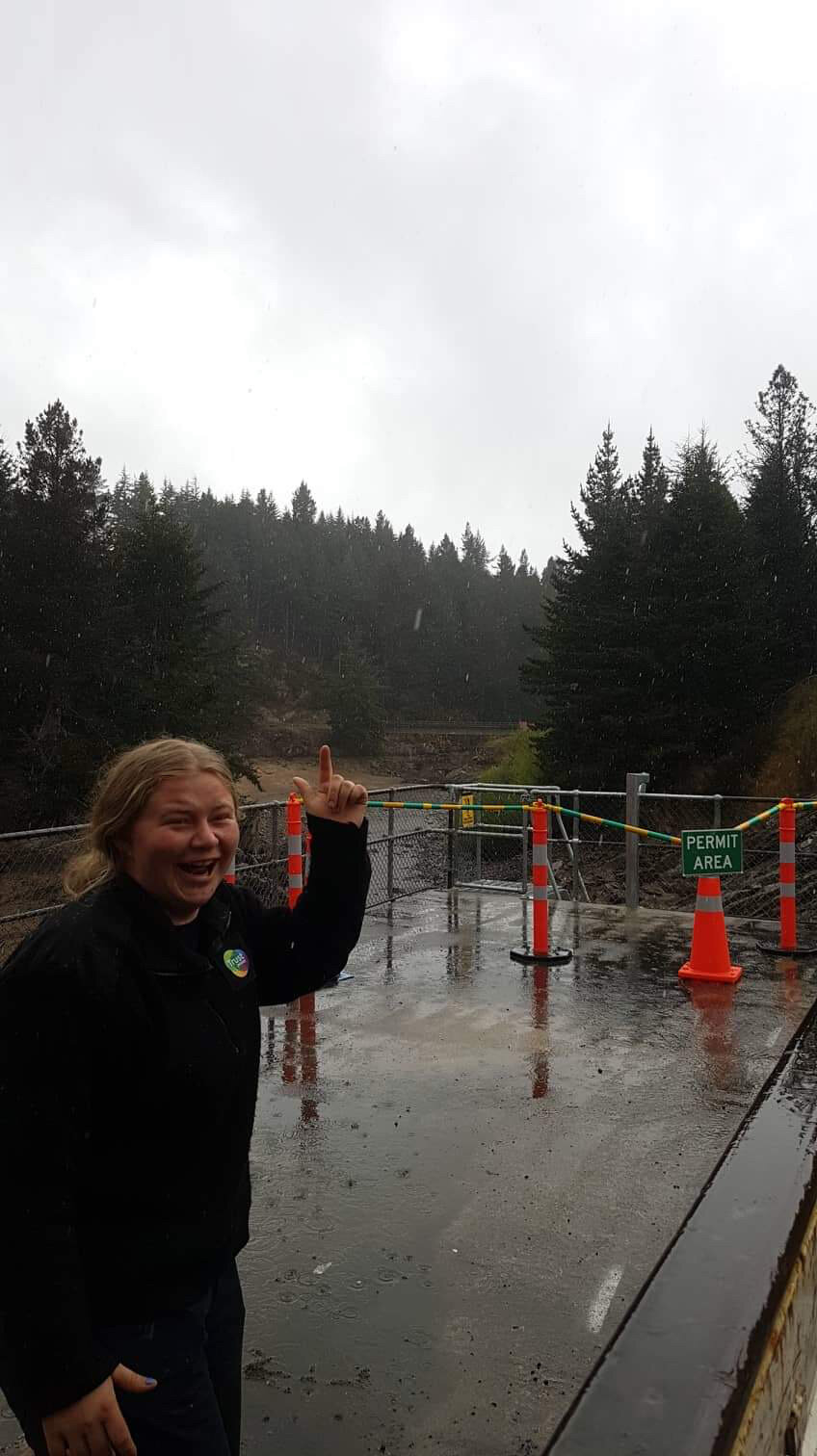
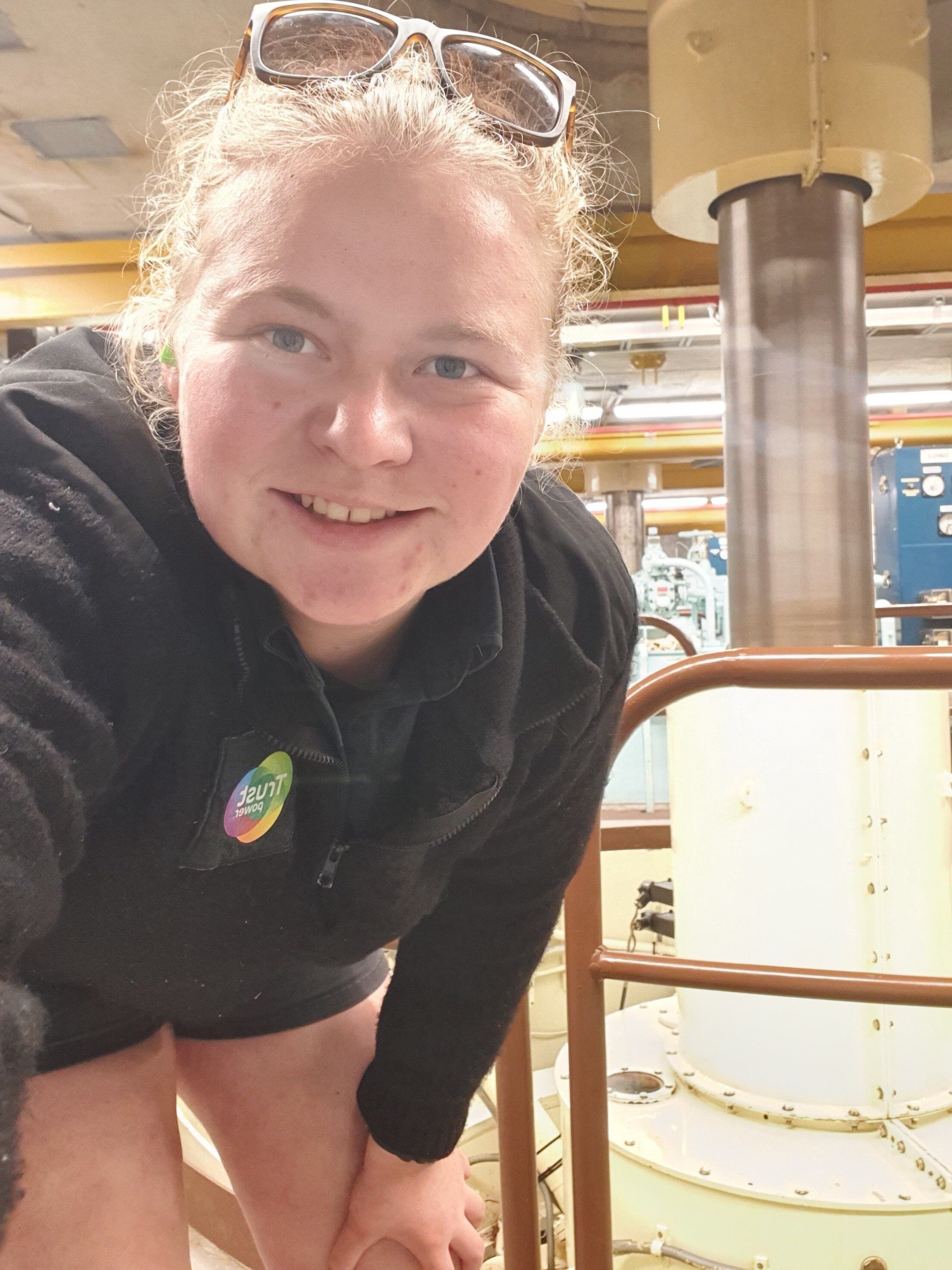
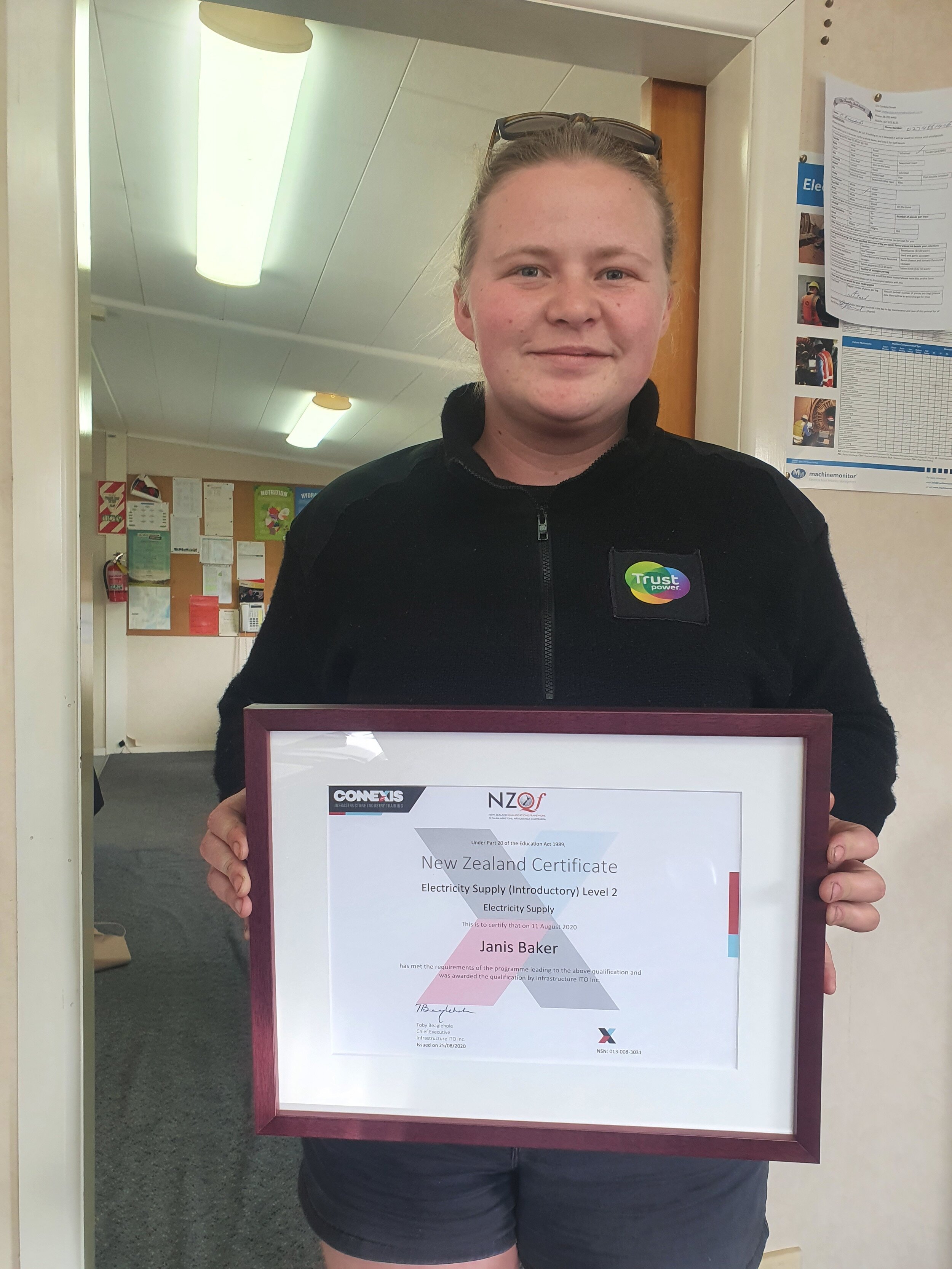
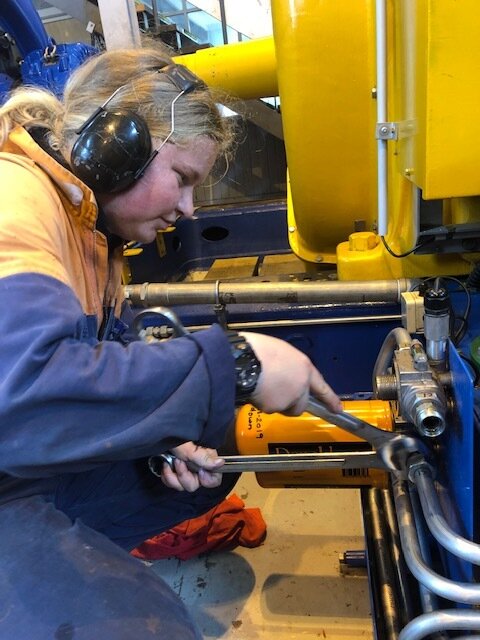
Event Panel Feature- Toni Harris
Next up in our 2021 event panel special features is Toni Harris- Apprentice Automotive Mechanic.
Women in Trades NZ would like to introduce you to Toni Harris- apprentice Automotive Mechanic in North Waikato, and one of our panellists for our 2021 Getting Women Into Trades Event.
If you are attending the event on August 19, and have any questions for Toni, make a note and bring them along- you will have the opportunity to ask questions of all our panellists at the end of the panel session.
WIT: Tell us about yourself, what do you enjoy? What do you do for fun outside of work?
Toni: My name is Toni Harris, I am 39 years old, I have four children and I live with my husband on the farm that he manages in North Waikato. Outside of the family and work, I enjoy showing my 4 dogs and being a part of the Northern Staffordshire Bull Terrier Club.I have 4 very spoiled Staffies.
WIT: What trade do you work in and what experience do you have within your trade? Did you make a change from a more traditional career? If so, why?
Toni: I am working as an apprentice Automotive Mechanic. I am studying automotive engineering level 3 & 4 through MITO. I was originally the Admin at my current workplace, so this is a huge change. Almost a year ago I decided I had enough of being in the office and that I would much prefer to learn the other side of things. It's the best decision I've ever made!
WIT: What do you find most enjoyable/rewarding about working in your trade?
Toni: I find my job highly satisfying. I'm a person who gets bored easily and my trade keeps me interested. I like that every day is different. Sure, there are services but each day there are different makes, models and years of vehicles, so I am constantly learning.
The most rewarding thing is fixing something and it working! When I did my first engine swap, I got a huge burst of pride when I turned the key and the engine turned over for the first time- my inner goddess did a backflip! I love that my daughters and my sons get to see me doing something that I am so passionate about, and that doesn't fit the usual mold. The girls see that gender is not a restraint and there's many career options out there.
WIT: What have you found most challenging and how did you overcome these challenges?
Toni: The most challenging part of my job has been the strength factor. I am slowly becoming stronger but to begin with I had to ask for help a lot- especially with cracking bolts or tightening to the correct torque. I've learned that leverage is your friend! I just have to use bigger power bars or use leverage to my advantage. Asking for help is not something I have an issue with, so if I can't do it after trying everything myself, then I ask one of the others.
WIT: What advice would you give re finding a job / the interview process? Or starting out fresh in a new company as a new apprentice? Do you have any words of support/encouragement?
Toni: To get yourself into the industry, I'd highly recommend befriending your local mechanic. Doing a pre-trade course can help put yourself out there, I didn't but it would help knowledge wise. Just keep showing up. Auto Super shoppes have an academy that runs a 12 week course and they can help place you in workshops for experience. As well as that, you can jump in and start yourself. There are so many videos on YouTube about engines and how they work- learn the basics and soak up the knowledge.
WIT: Do you have any goals for the future?
Toni: My goals for the future are to finish my apprenticeship and become a qualified mechanic. I'd love to run some "shop courses" to teach girls about cars and how to do their own maintenance. I can see myself mentoring a student. I'd love to help another female get into the trade. I started with almost zero base knowledge- I wasn't brought up learning about cars. I have always enjoyed watching motorsport and had an interest in classic cars, but I knew nothing about cars before I dove in head first into the MITO programme. I now have my own ‘57 ford that I tinker on in my garage. A new interest has turned into a passion and a life changing career.
WIT would like to say a huge thank you to Toni for taking the time to help us get to know a little about her trade journey, ahead of hearing from her in person at the upcoming event.
If you haven't got your FREE tickets yet- head to our event page HERE for all the info and tickets!
Event Panel Feature- Hera Eruera
The first in our 2021 event panel special features is Hera Eruera- Third year Plumbing, Gasfitting and Drainlaying apprentice.
Women in Trades NZ would like to introduce you to Hera Eruera- 3rd year Plumbing, Gasfitting and Drainlaying apprentice with Auckland Plumbers Group, and one of our panellists for our 2021 Getting Women Into Trades Event.
If you are attending the event on August 19, and have any questions for Hera, make a note and bring them along- you will have the opportunity to ask questions of all our panellists at the end of the panel session.
WIT NZ sat down for a Q&A with Hera so our community can get to know a little more about who she is and what she does.
WIT: Tell us about yourself, what do you enjoy? What do you do for fun outside of work?
Hera: Kia Ora! My name is Hera. I enjoy eating Kaimoana! I especially love gathering it for myself and my whānau, heading off to the beach for a dive. Letting my babies run amuck in the puddles on my days off mahi is my ideal fun- you'll either see me at the beach or at the Village fisheries scoffing kaimoana! If I’m not diving or eating, one of my other hobbies is reading. I love getting hooked into a good book. I've recently discovered digital books on so many good book apps- It doesn't beat a good hardback copy now and then though.
WIT: What trade do you work in and what experience do you have within your trade?
Hera: I'm a 3rd Year apprentice in the Plumbing, Gasfitting and Drainlaying Industry, currently with Auckland Plumbers Group.
WIT: Did you make a change from a more traditional career? If so, why?
Hera: Not really, but I made a change to break a generational cycle, to be a good influence on my whānau and friends, and anyone else on a similar journey, to be inspired by. I never knew of or saw anyone that was similar to me that I could look up to when I was young. I'm hoping young girls one day will come to think of Trades as being a traditional careers.
WIT: What do you find most enjoyable/rewarding about working in your trade?
Hera: To be honest the thing I find more enjoyable and rewarding is all the variety of jobs I come across. Meeting new customers and their reactions to seeing a Plumberette Apprentice turn up onsite, and the genuine gratitude and excitement from our elderly female customers is a reward in itself.
WIT: What have you found most challenging and how did you overcome these challenges?
Hera: Emotionally, I found the doubt from others the most challenging. Always having to feel like I've got to prove myself. I'm learning to stop doubting myself, taking a step back and being proud of who I'm becoming and all that I have achieved so far. I’ve started to document all my work and it's amazing seeing my progress.
Physically, the most challenging aspects I’ve dealt with would be all of the awkward spaces I've got to crawl my way into. Some days I feel like I could be a yoga instructor, although I don't enjoy exercise. I'm learning to do basic stretches each morning and afternoon for at least 5-10mins to help with my agility.
WIT: What advice would you give someone starting out fresh in a new company as a new apprentice? Do you have any words of support/encouragement?
Hera: Always be yourself, let it be known your most current or previous experience in the workforce, whether you're just starting from scratch or done a pre-trade or you were a full time mum like I was, the main thing is that you're keen and willing to learn and be taught.
I made it clear during my first interview process for work experience at a plumbing company, that I had been a full time mama, part time cleaner/factory worker, but now I am very keen and passionate about starting my new career pathway. Be positive when approaching a new company, THEY NEED YOU!
You won't know until you give it a go, don't think of it as wasting your time- think of it as investing your time toward your goal instead. You may or may not like it, but at least you gave it a go and can learn from it, life is an experience, our career can be too, it's what we can learn from the good or bad that gives us the thrill!
WIT: Do you have any goals for the future? Is there anything else about yourself or your trade that you would like to share?
Hera: Since meeting a few female apprentices/tradies throughout the last few years, I think I'd love to own a company full of Tradie Ladies, that's my ultimate dream goal! Becoming the absolute best that I can, so that one day I can pass on what I am learning to someone else starting their journey.
WIT would like to say a huge thank you to Hera for taking the time to help us get to know a little about her trade journey, ahead of hearing from her in person at the upcoming event.
If you haven't got your FREE tickets yet- head to our event page HERE for all the info and tickets!
